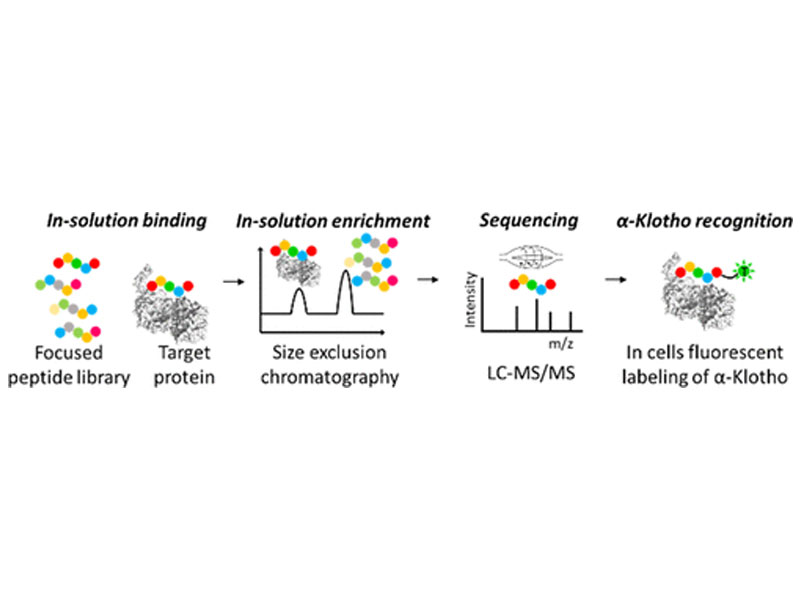
Development of an α-Klotho Recognizing High-Affinity Peptide Probe from In-Solution Enrichment

Development of an α-Klotho Recognizing High-Affinity Peptide Probe from In-Solution Enrichment
Peiyuan ZhangXiyun YeJohn C. K. WangCorey L. SmithSilvino SousaAndrei LoasDan L. EatonMagdalena Preciado López*Bradley L. Pentelute*
Abstract
The kidney, parathyroid gland, and choroid plexus express the aging-related transmembrane protein α-Klotho, a coreceptor of the fibroblast growth factor 23 (FGF23) receptor complex. Reduced α-Klotho levels are correlated with chronic kidney disease and other age-related diseases, wherein they are released from membranes into circulation. Klotho’s potential physiological action as a hormone is of current scientific interest. Part of the challenges associated with advancing these studies, however, has been the long-standing difficulty in detecting soluble α-Klotho in biofluids. Here, we describe the discovery of peptides that recognize α-Klotho with high affinity and selectivity by applying in-solution size-exclusion-based affinity selection-mass spectrometry (AS-MS). After two rounds of AS-MS and subsequent N-terminal modifications, the peptides improved their binding affinity to α-Klotho by approximately 2300-fold compared to the reported starting peptide Pep-10, previously designed based on the C-terminal region of FGF23. The lead peptide binders were shown to enrich α-Klotho from cell lysates and to label α-Klotho in kidney cells. Our results further support the utility of in-solution, label-free AS-MS protocols to discover peptide-based binders to target proteins of interest with high affinity and selectivity, resulting in functional probes for biological studies.



